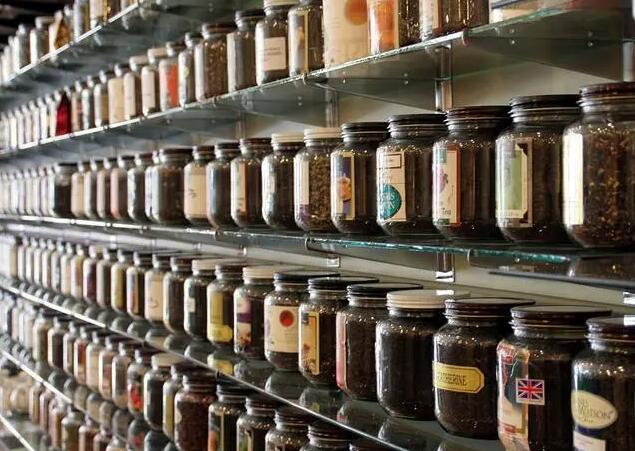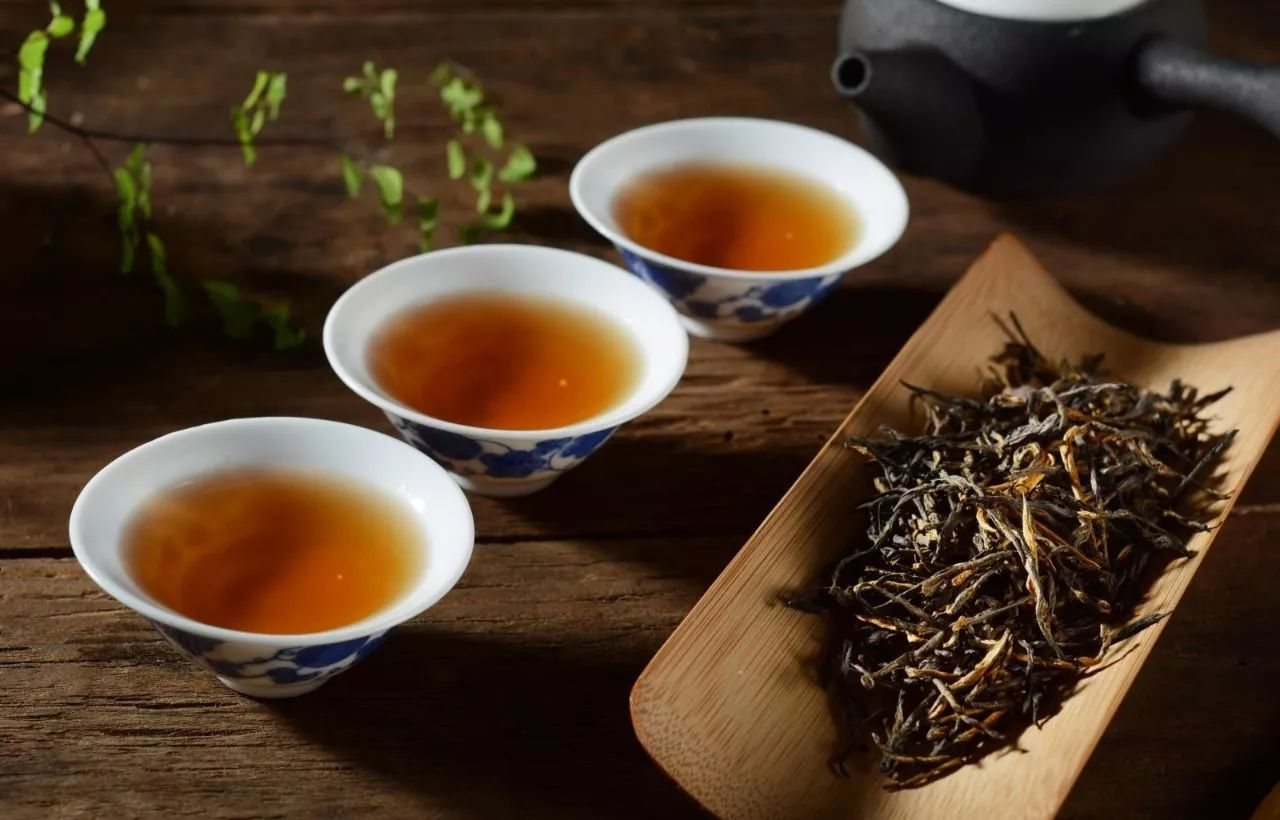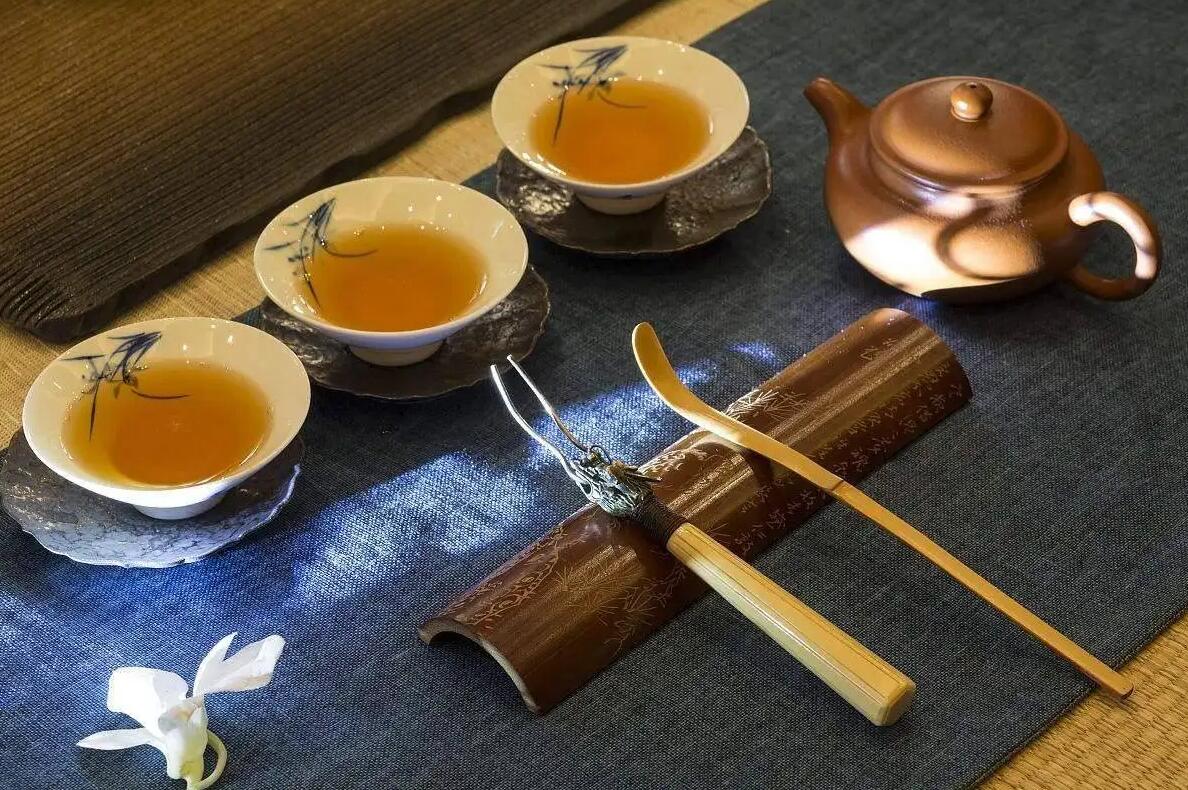Author: Zheng Xiang Ru/Photos: Xu Hong Wei
How time flies - in the blink of an eye, nine years have passed since Taiwan's devastating 9/21 earthquake occurred at the end of the 20th century. Located 9.2km to the northeast of the epicenter, Nantou county's Yuchi township Sun Moon Lake (Ri Yue Tan) national scenic area suffered extensive damage. The quake dealt a heavy blow to the majority of its facilities as well as nearby industry. This well-known scenic spot immediately fell into disrepair. However, thanks to the tea agricultural improvement program and the efforts of local tea farmers, the Yuchi tea growing area has managed to develop a unique character and has successfully recreated the Yuchi " Birthplace of Black Tea" brand. Its most widely known tea variety is Taiwan Tea No. 18 or "Hong Yu" (Ruby Stone).
The birthplace and history off Taiwanese black tea
In order to introduce the "Hong Yu" tea variety, we must start with the rise of Taiwanese black tea. According to Yuchi tea improvement station technical staff member Liang Huang Yi, early Taiwan tea was dominated by Oolong, Baozhong, and Tieguanyin varieties. Having been influenced by Western culture, the Japanese had developed a strong interest in coffee and black tea. Black tea required traversing the oceans to buy from India. Around 1910, Japanese traders brought back large-leaf black tea seeds from Assam, India and performed trial plantings in Japan's Kyushu and in Taiwan's Linkou and Yuchi Lianhuachi areas. The trial planting at Yuchi produced excellent results, and the quality of the resulting tea was even praised in Britain. Through investigation, the Japanese found that the soil, climate, and rainfall totals in the Yuchi area were very similar to India's Assam tea-growing region. Taiwan's island climate provides the area with large variation in daytime and nighttime temperatures as well as ample rainfall. The Japanese strongly encouraged farmers to plant and produce tea on a large scale, taking such measures as founding the Black Tea Research Institute at Sun Moon Lake (today's Yuchi tea improvement station). After the recovery of Taiwan, tea growers mastered the production of black tea. The late 1950's to the early 1960's represent a peak in exports. Black tea cultivation areas in the Yuchi Lugu tea district reached a maximum of 2000 hectares. Processing costs increased, however, limiting growth of export profits. Unscrupulous merchants mixed in inferior tea leaves causing customers to repeatedly return merchandise. This was the most significant cause of the decline of Taiwanese black tea.
Black tea industry's savior
Let's first look back to 1951. At that the time the Black Tea Research Institute, studying black tea production, crossbred a Myanmar large leaf tea as female parent with a Taiwanese wild mountain tea as male parent. They gave the new strain the code name BI-40 1-58, referring to the fact that this was the 58th tea variety tested in the 40th year of the Republic of China (i.e., 1951). Following 30 years of successful experimental breeding, in 1981 it was distributed to tea farmers for planting. Tea farmers widely praised it for its strong growth performance and its high yield.
By the end of the twentieth century, Taiwan's rapid economic growth had improved the quality of leisure time for average citizens. Demand for tea likewise increased. Consequently, in June 1999, after successful review, this tea variety was formally registered under the name "Taiwan Tea Number 18" and began to be more widely promoted. In 2003, for the 100th anniversary of the Tea Improvement Station, internal personnel publicly voted to give the variety the fitting name "Hong Yu" (Ruby Stone) and began to devote much of their effort to promoting these distinguished tea products, Around 2005, the success of these efforts encouraged tea farmers to chop down their betelnut palm trees, successively replanting their original tea plantations with Taiwan Tea No. 18, Today the total area under cultivation is approximately 3,000 hectares and continues to increase gradually.
Taiwan Tea No. 18, also known as "Hong Yu" or "Han Shan Black Tea," inherits the genes of wild mountain tea. It is a large leaf arbor type variety. Young trees can be easily knocked down. The trees have a high crown and relatively few branches, which is their main difference compared with shrub-style plantation teas. With thick, deep roots, the trees grow strong and do not easily succumb to illness. Young buds and fine fuzz are relatively scarce. The leaf blades are thick and possess rich luster. Most unique are the edges of the leaves, which possess a natural wave shape.
During the period between its introduction and being given the name "Taiwan Tea Number 18," the variety did not seem to receive much official attention. Liang Huang Yi explains that this is partly because early internal demand for black tea was not high and also because export would require the tea to conform to international standards for black tea. Hong Yu has never conformed to these standards. Black tea is picked as one bud/two leaves or one bud/three leaves. Because the bud at the center possesses fine fuzz and during production this fine white fuzz does not come off, the brewed tea will turn a red, orange, or golden yellow color. More fine white fuzz means higher quality tea. Hong Yu, however, inherits the characteristics of Taiwan mountain tea and has little fine fuzz. After processing, it is even harder to find fine white fuzz. Adding in the effect of standard brewing techniques and the result is a tea with a relatively heavy undertone. As a result, it is unable to achieve favorable evaluation from judges of tea. Although its wild mountain heritage means that white fuzz is scarce, it also provides Hong Yu tea with a natural cinnamon fragrance and a quietly elegant peppermint fragrance. This delightful aroma belongs to it alone and is praised by black tea experts as a unique "Taiwan fragrance." Moreover, the brewed tea with glass tea set has a soft and smooth kougan (mouth feel) and an uncomplicated vigorousness.
Promoting the resurgence of Yuchi black tea
In addition to the new trails blazed by the "Hong Yu" tea variety, the resurgence of the Yuchi tea industry also owes a significant debt to one important individual who led local tea growers to one-by-one throw their efforts into renewing a black tea industry. This individual is the Yuchi township Black Tea Production and Marketing Team's sixth team leader Mr. Ye Jin Long.
Following the decline of black tea exports, many tea farmers switched to growing betelnut trees or let their tea plantations go uncultivated. Only a small number of tea plantations remained. During his youth Mr. Ye was involved in tea production. Although he also stopped growing tea, his connection with black tea did not end. He and his wife switched to choosing and purchasing raw tea material. Because it was machine harvested or manually cut tea, the quality was relatively uneven. It was primarily sold to packaged beverage factories for a price of between NT $10 and $13 per catty (500g). During the 13 years before the 9/21 earthquake, this price remained unchanged.
In the post-9/21 earthquake rehabilitation program, numerous residents hoped to take advantage of the formerly brilliant black tea industry to revitalize the Yuchi economy. The Yuchi agricultural association and the tea reform committee also undertook popularization activities, but without a profit incentive residents did not dare rashly invest in black tea. Starting in 2002,however, a few tea growers including Mr. Ye spontaneously formed the Yuchi township Black Tea Production and Marketing Team. Through organic management, pesticide-free growing, handpicking, and quality-focused ideas, tea prices gradually increased. Among the entire production and marketing team, team leader Ye's sixth team experienced the greatest results. His diligence and serious attitude toward the popularization of black tea won the praise and approval of his peers and drew the cooperation and support of business owners, His efforts also attracted the attention of the community. Through word of mouth, many people came to know that when in Sun Moon Lake one must try Yuchi black tea.
Currently Mr. Ye's tea plantation covers six hectares, of which more than half are devoted to Hong Yu. The remaining back tea varieties are all referred to as Assam black tea. Due to its unique kougan and fragrance, Hong Yu commands a somewhat higher price than the other black teas. According to Mr. Ye, though, all of the tea is the result of careful work and there is no good or bad. With respect to the Taiwanese black tea industry's renewed rise to prominence, Mr. Ye takes nothing for granted, persisting in consolidating every step in the chain from production to processing to sales. Liang Huang Yi adds that Taiwanese people demand that tea emphasize "quality not quantity." Today black tea is largely grown organically and hand-picked, resulting in excellent quality. Only if tea growers can follow these processes, stabilizing financial management, production, and sales procedures, will they be able to avoid a boom and bust cycle and maintain solid profits. Only this way will they be able to steadily develop the black tea production areas,
Hong Yu has created a name for itself and has helped bring about a rebirth in the black tea industry. Today Hong Yu production is centered in Puli and Yuchi. Other tea growing districts such as Jiayi and Mingjia contain small areas of experimental planting. The Ruisui township of Hualian county's Hegang village and the area around Taidong's Luye also grow a fair amount. People in Mingjian and Lugu have also been attempting to produce black tea from small leaf tea varieties. Higher quality black tea grows in summer and fall, whereas Oolong is best in spring and winter. Consequently, especially at lower altitudes, plant diseases and pests are relatively numerous, but these do not necessarily represent a threat to black tea. For instance, bites from small green-leaf cicadas give Eastern Beauty tea a honey-like fragrance that is very popular in the market.
In the past, giving black tea as a gift in Taiwan could lead to criticism. Giveing black tea as a gift today, the recipient will nod their head and praise the quality of Yuchi black tea. Although international recognition for Hong Yu tea still has plenty of room for improvement, it has nonetheless already attracted tourists to visit Sun Moon Lake to enjoy Taiwan's unique black tea. Perhaps Taiwanese black tea still has a distance to travel before it can return to the glory days of the 1950 s. Just as the people of Taiwan rebuilt after the 9/21 earthquake with willpower and determination, tea farmers pour their efforts into recovery, taking advantage of the strong support of Hong Yu. One day Taiwanese black tea will again become world-renowned.



